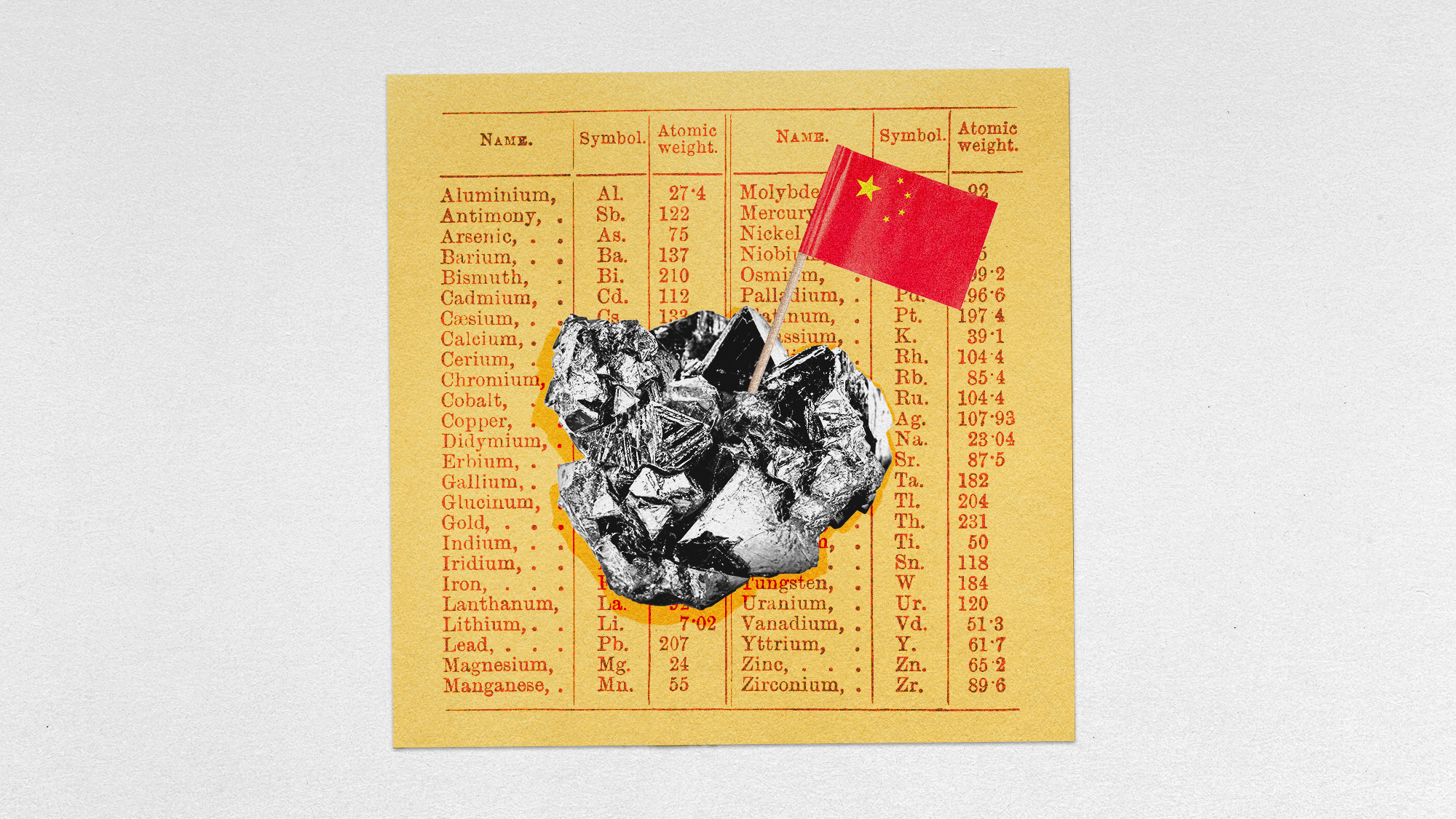The daily business briefing: November 28, 2022
Cyber Monday kicks holiday shopping season into high gear, protests spread against China's COVID restrictions, and more


- 1. Cyber Monday accelerates crucial holiday shopping season
- 2. Protests spread in China against COVID restrictions
- 3. U.S. stock futures fall as China COVID restrictions fuel protests
- 4. Whole Foods decision to halt Maine lobster sales divides politicians, environmentalists
- 5. Disney's 'Strange World' bombs at box office
A free daily email with the biggest news stories of the day – and the best features from TheWeek.com
You are now subscribed
Your newsletter sign-up was successful
1. Cyber Monday accelerates crucial holiday shopping season
With the arrival of Cyber Monday, retailers are trying to use steep discounts to attract customers at the start of an especially crucial holiday shopping season. Many retailers have excess inventory and are rushing to sell it while consumers boosted by pandemic-era savings are still spending, despite high inflation and rising concerns that Federal Reserve interest-rate hikes could spark a recession. Many Americans spent more money in stores on Black Friday than last year. "People are less fearful about going out now," Chloe Gonzales, who woke up at 4 a.m. to go Christmas shopping in Austin, Texas, told The Wall Street Journal. "They're not as worried about COVID." Still, online Black Friday shopping rose to a record of more than $9 billion.
The New York Times The Wall Street Journal
2. Protests spread in China against COVID restrictions
Rare unrest over China's tough COVID-19 restrictions, which threaten to drag down the global economy, continued to spread for a third straight day on Sunday. Hundreds of protesters clashed with police in Shanghai. The demonstrations reached several other cities following a deadly fire in the country's far west, with government critics saying coronavirus restrictions delayed the response. Two groups with a combined 1,000 or more protesters gathered in Beijing early Monday. "We don't want masks, we want freedom," one of the groups chanted. People also demonstrated in Wuhan and Chengdu on Sunday, and students gathered to demonstrate on numerous university campuses over the weekend in the first such broad display of civil disobedience since President Xi Jinping took power a decade ago.
The Week
Escape your echo chamber. Get the facts behind the news, plus analysis from multiple perspectives.

Sign up for The Week's Free Newsletters
From our morning news briefing to a weekly Good News Newsletter, get the best of The Week delivered directly to your inbox.
From our morning news briefing to a weekly Good News Newsletter, get the best of The Week delivered directly to your inbox.
Reuters The Wall Street Journal
3. U.S. stock futures fall as China COVID restrictions fuel protests
Stock futures fell early Monday on concerns about spreading protests against China's tough COVID-19 restrictions. Futures tied to the Dow Jones Industrial Average and the S&P 500 were down 0.5 percent and 0.7 percent, respectively, at 6:30 a.m. ET. Nasdaq futures were down 0.8 percent. The concerns about China's protests and worsening coronavirus outbreak hurt stocks in Asia, and sent oil prices to their lowest level in 2022 on concerns that China's crisis could reduce demand. U.S. stocks ended higher last week, in trading shortened by the Thanksgiving holiday. The Dow and the S&P 500 gained 1.8 percent and 1.5 percent, respectively, last week. The tech-heavy Nasdaq rose 0.7 percent.
4. Whole Foods decision to halt Maine lobster sales divides politicians, environmentalists
Whole Foods' decision to remove Maine lobster from its stores has divided New England lawmakers, fishing businesses, and environmental groups. The move came after two sustainability organizations, Marine Stewardship Council and Seafood Watch, took away their endorsements of the U.S. lobster fishing industry. Virginia Carter, an associate with the Save America's Wildlife Campaign at Environment America Research & Policy Center, said halting the sales was an "important action" to protect the fewer than 340 remaining North Atlantic right whales from fishing gear. "The species is swimming toward extinction unless things turn around," Carter said. Maine Gov. Janet Mills (D) and the state's four-member congressional delegation said in a statement that the move came despite years of protection of whales by Maine fishermen.
A free daily email with the biggest news stories of the day – and the best features from TheWeek.com
5. Disney's 'Strange World' bombs at box office
Walt Disney Co.'s new movie, Strange World, brought in a disappointing $18.6 million in ticket sales over a long Thanksgiving holiday weekend that started on Wednesday. The latest release was the entertainment giant's second straight animated flop, after this summer's Lightyear. Disney did have a bigger bomb in March 2021, Raya and the Last Dragon, but that was largely due to the thinning of movie theater audiences due to the coronavirus pandemic. Before that it had been more than 10 years since Disney's animated division had a theatrical opening as dismal as Strange World's, according to The Wall Street Journal. The poor performance of two consecutive animated films shows that returning CEO Bob Iger faces a "theatrical environment far harsher to animated releases than the one he left" in 2020, the Journal said.
Harold Maass is a contributing editor at The Week. He has been writing for The Week since the 2001 debut of the U.S. print edition and served as editor of TheWeek.com when it launched in 2008. Harold started his career as a newspaper reporter in South Florida and Haiti. He has previously worked for a variety of news outlets, including The Miami Herald, ABC News and Fox News, and for several years wrote a daily roundup of financial news for The Week and Yahoo Finance.
-
 What to know before filing your own taxes for the first time
What to know before filing your own taxes for the first timethe explainer Tackle this financial milestone with confidence
-
 The biggest box office flops of the 21st century
The biggest box office flops of the 21st centuryin depth Unnecessary remakes and turgid, expensive CGI-fests highlight this list of these most notorious box-office losers
-
 The 10 most infamous abductions in modern history
The 10 most infamous abductions in modern historyin depth The taking of Savannah Guthrie’s mother, Nancy, is the latest in a long string of high-profile kidnappings
-
 TikTok secures deal to remain in US
TikTok secures deal to remain in USSpeed Read ByteDance will form a US version of the popular video-sharing platform
-
 How will China’s $1 trillion trade surplus change the world economy?
How will China’s $1 trillion trade surplus change the world economy?Today’s Big Question Europe may impose its own tariffs
-
 Shein in Paris: has the fashion capital surrendered its soul?
Shein in Paris: has the fashion capital surrendered its soul?Talking Point Despite France’s ‘virtuous rhetoric’, the nation is ‘renting out its soul to Chinese algorithms’
-
 Will latest Russian sanctions finally break Putin’s resolve?
Will latest Russian sanctions finally break Putin’s resolve?Today's Big Question New restrictions have been described as a ‘punch to the gut of Moscow’s war economy’
-
 China’s rare earth controls
China’s rare earth controlsThe Explainer Beijing has shocked Washington with export restrictions on minerals used in most electronics
-
 The struggles of Aston Martin: burning cash not rubber
The struggles of Aston Martin: burning cash not rubberIn the Spotlight The car manufacturer, famous for its association with the James Bond franchise, is ‘running out of road’
-
 US to take 15% cut of AI chip sales to China
US to take 15% cut of AI chip sales to ChinaSpeed Read Nvidia and AMD will pay the Trump administration 15% of their revenue from selling artificial intelligence chips to China
-
 Is Trump's tariffs plan working?
Is Trump's tariffs plan working?Today's Big Question Trump has touted 'victories', but inflation is the 'elephant in the room'
